Rutvij H. Jhaveri
Metaverse for Healthcare: A Survey on Potential Applications, Challenges and Future Directions
Sep 09, 2022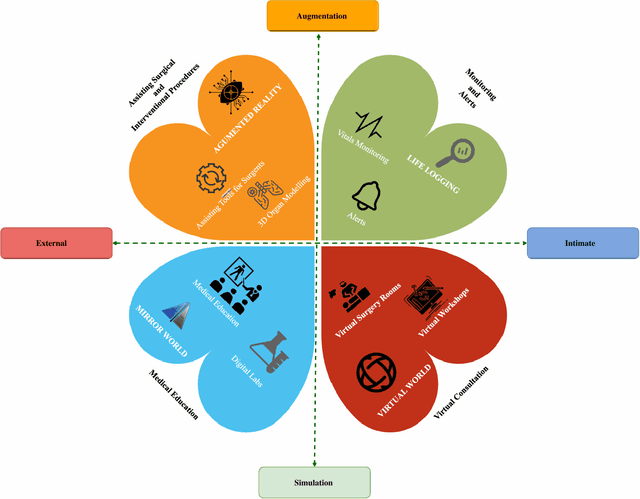

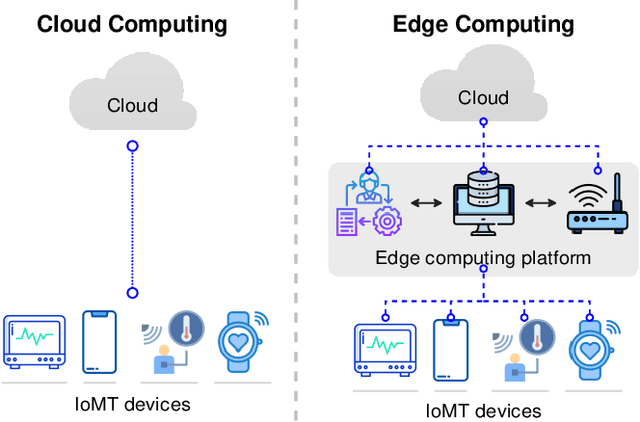
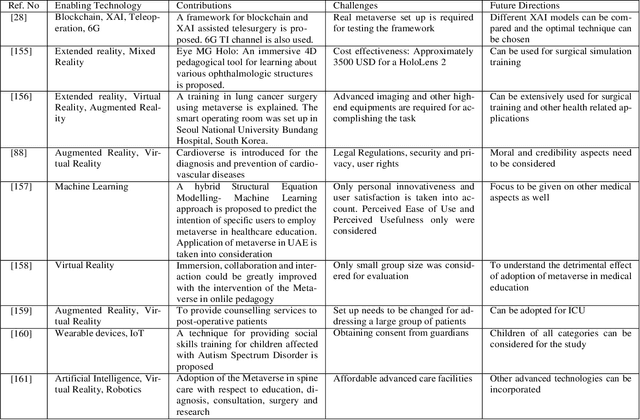
Abstract:The rapid progress in digitalization and automation have led to an accelerated growth in healthcare, generating novel models that are creating new channels for rendering treatment with reduced cost. The Metaverse is an emerging technology in the digital space which has huge potential in healthcare, enabling realistic experiences to the patients as well as the medical practitioners. The Metaverse is a confluence of multiple enabling technologies such as artificial intelligence, virtual reality, augmented reality, internet of medical devices, robotics, quantum computing, etc. through which new directions for providing quality healthcare treatment and services can be explored. The amalgamation of these technologies ensures immersive, intimate and personalized patient care. It also provides adaptive intelligent solutions that eliminates the barriers between healthcare providers and receivers. This article provides a comprehensive review of the Metaverse for healthcare, emphasizing on the state of the art, the enabling technologies for adopting the Metaverse for healthcare, the potential applications and the related projects. The issues in the adaptation of the Metaverse for healthcare applications are also identified and the plausible solutions are highlighted as part of future research directions.
Managing Industrial Communication Delays with Software-Defined Networking
Apr 14, 2020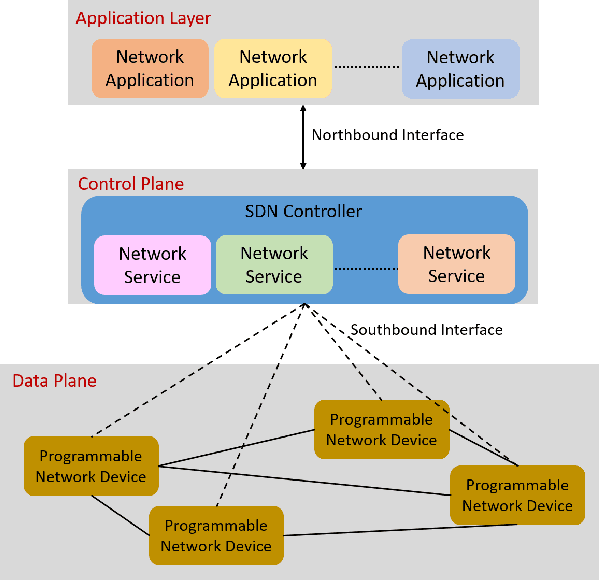
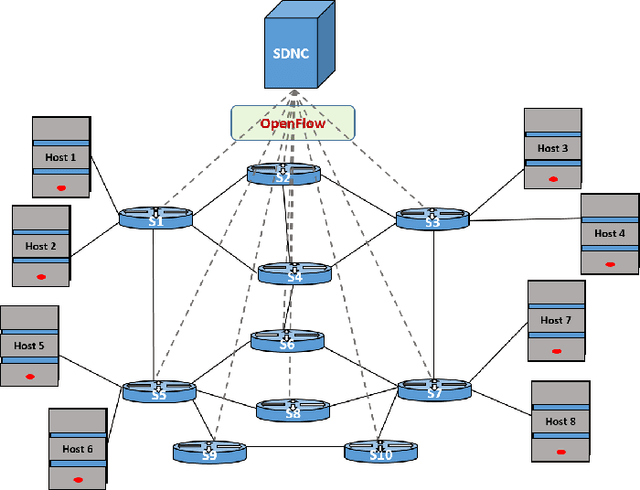
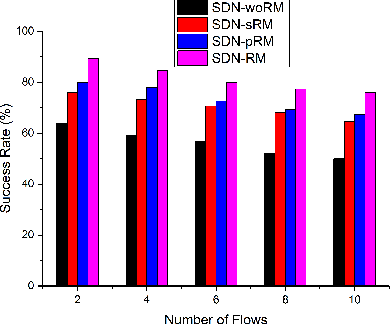
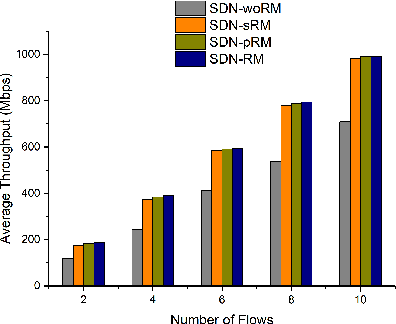
Abstract:Recent technological advances have fostered the development of complex industrial cyber-physical systems which demand real-time communication with delay guarantees. The consequences of delay requirement violation in such systems may become increasingly severe. In this paper, we propose a contract-based fault-resilient methodology which aims at managing the communication delays of real-time flows in industries. With this objective, we present a light-weight mechanism to estimate end-to-end delay in the network in which the clocks of the switches are not synchronized. The mechanism aims at providing high level of accuracy with lower communication overhead. We then propose a contract-based framework using software-defined networking where the components are associated with delay contracts and a resilience manager. The proposed resilience management framework contains: (1) contracts which state guarantees about components behaviors, (2) observers which are responsible to detect contract failure (fault), (3) monitors to detect events such as run-time changes in the delay requirements and link failure, (4) control logic to take suitable decisions based on the type of the fault, (5) resilience manager to decide response strategies containing the best course of action as per the control logic decision. Finally, we present a delay-aware path finding algorithm which is used to route/reroute the real-time flows to provide resiliency in the case of faults and, to adapt to the changes in the network state. Performance of the proposed framework is evaluated with the Ryu SDN controller and Mininet network emulator.
Real-time QoS Routing Scheme in SDN-based Robotic Cyber-Physical Systems
Apr 09, 2020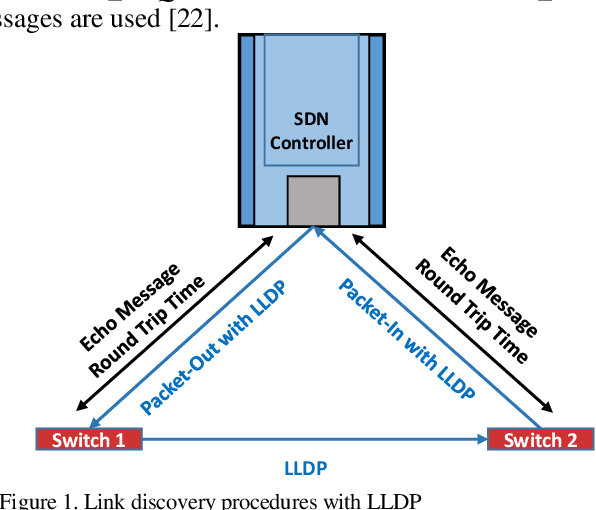

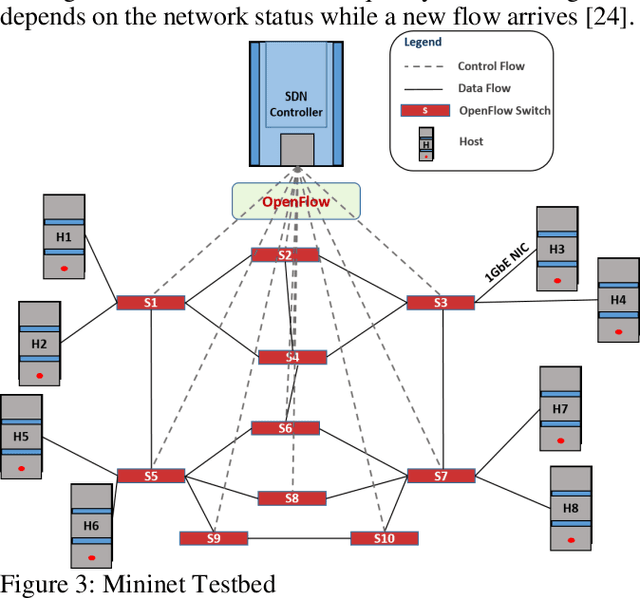
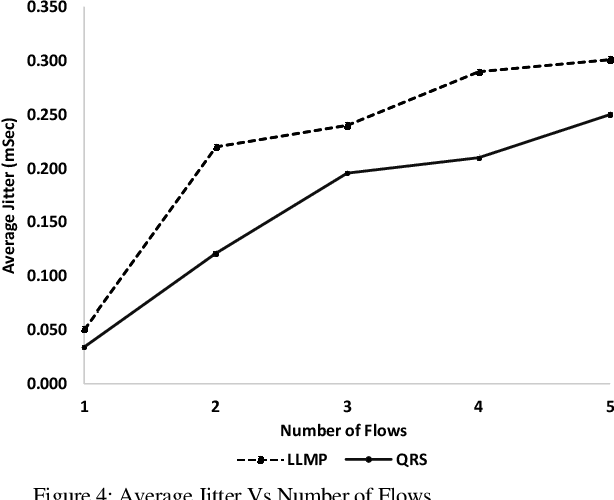
Abstract:Industrial cyber-physical systems (CPS) have gained enormous attention of manufacturers in recent years due to their automation and cost reduction capabilities in the fourth industrial revolution (Industry 4.0). Such an industrial network of connected cyber and physical components may consist of highly expensive components such as robots. In order to provide efficient communication in such a network, it is imperative to improve the Quality-of-Service (QoS). Software Defined Networking (SDN) has become a key technology in realizing QoS concepts in a dynamic fashion by allowing a centralized controller to program each flow with a unified interface. However, state-of-the-art solutions do not effectively use the centralized visibility of SDN to fulfill QoS requirements of such industrial networks. In this paper, we propose an SDN-based routing mechanism which attempts to improve QoS in robotic cyber-physical systems which have hard real-time requirements. We exploit the SDN capabilities to dynamically select paths based on current link parameters in order to improve the QoS in such delay-constrained networks. We verify the efficiency of the proposed approach on a realistic industrial OpenFlow topology. Our experiments reveal that the proposed approach significantly outperforms an existing delay-based routing mechanism in terms of average throughput, end-to-end delay and jitter. The proposed solution would prove to be significant for the industrial applications in robotic cyber-physical systems.
 Add to Chrome
Add to Chrome Add to Firefox
Add to Firefox Add to Edge
Add to Edge